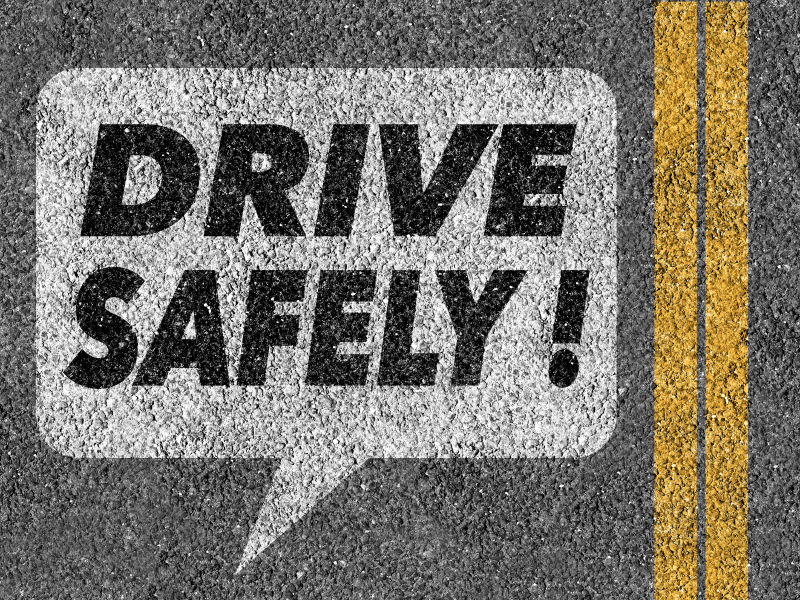 Recalls are a fact of life. In 2014, there were 803 recalls for problems with more than 63.9 million vehicles. Yes, it is up to auto manufacturers to let you know about a recall, but it isn't that simple. Consumers have to be on the ball, too.
Recalls are a fact of life. In 2014, there were 803 recalls for problems with more than 63.9 million vehicles. Yes, it is up to auto manufacturers to let you know about a recall, but it isn't that simple. Consumers have to be on the ball, too.
A recall is issued when a manufacturer or the National Highway Traffic and Safety Administration (NHTSA) determines that a vehicle, car seat, tire, or any equipment creates an unreasonable safety risk or fails to meet minimum safety standards. Manufacturers are required to fix the problem by repairing it, replacing it, offering a refund, or in rare cases, repurchasing the vehicle.
If you were one of the people who didn't respond to a recall, then you may not have known about it. Or maybe you just didn't care. There are many reasons why vehicles don't get repaired.
"Consumers have many different responses to recall letters," says Carroll Lachnit, an editor for car-shopping website Edmunds.com. "Some people just ignore recalls. Manufacturers send multiple letters to owners of affected cars in an effort to impress on them the seriousness of a car recall, but the letters don't always connect with new owners when a car is sold."
Some recalls are so big that it becomes a problem to get parts, therefore recall fixes get delayed. Examples include the recent massive recalls like the Takata airbag and General Motors' ignition switch.
Owners who move might not receive recall notices. Registrations expire and when vehicles are sold, companies frequently lose track of them. Also consumers should know that when they buy used cars, there is no federal law that requires sellers to tell customers whether or not recalls have been completed.
Completion rates for recalls vary even by the type of component that is failing. Completion rates for airbags and seat belts have been, on average, much lower than those for powertrain and steering-related defects throughout the last 10 years.
Relatively high completion rates for powertrain components, which average 83 percent, may be tied to longer manufacturer warranties for such components, providing owners a greater incentive to visit their authorized dealership to have these repairs completed. Steering defects also are completed at a high 83 percent rate. Vehicle speed control and seat belt related recalls are the lowest for completion rates, at about 70 percent and 71 percent, respectively.
Another factor that strongly influences recall completion rates is vehicle age. Older vehicles completion rates are generally lower, often significantly. The widest disparity is between vehicles older than three years at the time of the recall (59 percent completion rate) and newer than three years (80 percent). The likely reason for this difference is that many vehicle warranties last for three years.
According to an email from Toyota, as of 2013, the company had repaired approximately 90 percent of the vehicles involved in its unintended acceleration recall, well above the 70 percent cited by NHTSA.
General Motors has reached a high percentage of completions for the ignition switch recall. "We are now 73.5 percent complete, about 1.7 million of 2.35 million vehicles," said Patrick Morrissey, spokesperson for GM. "This is based on the number of vehicles still registered, lower than the 2.6 million produced and recalled. The lower number removed scrapped and unregistered vehicles."
"We want owners to come back," said Chris Hosford, spokesperson for Hyundai North America. It's finding them that can be the problem. "If a customer doesn't want to give a dealer an email address for privacy reasons, that's understandable. But if they move and we don't have an email address we can't get in touch with them when a recall happens."
Auto companies, for the most part, make a concerted effort to reach their customers regarding recalls. It is the responsibility of the car owner to read recall notices and pursue a completion.
Fiat Chrysler Automobiles has begun contacting customers who are eligible for certain recall-completion incentives. The automaker says the incentives -- ranging from $100 prepaid cards to vehicle-repurchase plans -- are designed to bring owners in for certain recalls involving older SUVs and model-year 2009-2012 trucks, for which remedies were not immediately available.
"Remedies are available, we are servicing vehicles and we encourage affected customers to contact their dealers," said Scott Kunselman, senior vice president vehicle safety and regulatory compliance. "It is imperative that all vehicles implicated by recalls are inspected and serviced, as required."
A consumer who is buying a used car should look to see if it has had a recall notice and whether the fix has been completed. And if you own a car, check periodically to see if your vehicle has had a recall notice that you may have missed.
NHTSA has a free research tool available online that allows owners to see if a recall notice is pending or has been completed on any car. Anyone can go to www.safercar.gov and type in the vehicle identification number (VIN) for a particular vehicle.